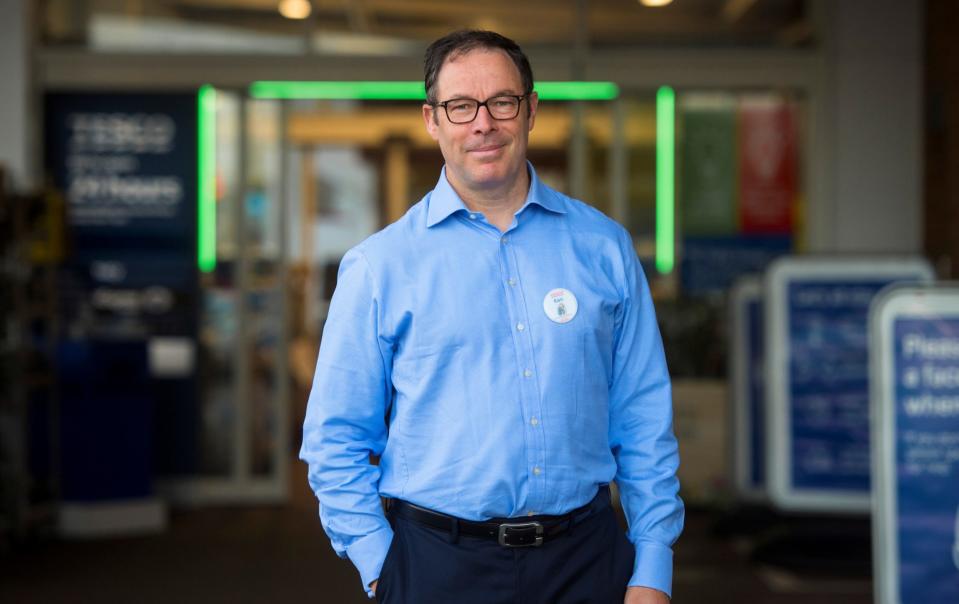Tesco to slice the price of bread to beat Aldi and Lidl

Tesco has signalled it is ready to slice the price of bread, as Britain's biggest supermarket strives to compete with rivals Aldi and Lidl.
The supermarket, which earlier this week cut the price of milk to below the German discounters, said the costs of ingredients including grains and oil were starting to come down, meaning more price cuts could be on the horizon.
Ken Murphy, Tesco’s chief executive, said: “We would hope that, in certain areas, in bakery, you will start to see some deflation.” He added the retailer would be “very vigilant and very rigorous” to get a better price from its suppliers when it could see their costs going down.
The prospect of lower prices for baked goods comes after months of increases in the department, with Mr Murphy saying bakery was one area which had experienced “the worst inflation”. This has been driven by a spike in the cost of flour and gas, in the wake of Russia's invasion of Ukraine.
At Warburton's, for example, the price of a loaf of sliced white bread went up by 16pc in January at Asda and Morrisons in January, according to Assosia data published in The Grocer. The baker’s chairman Jonathan Warburton earlier this year told The Telegraph that cost increases had been “eye-watering”. “The market has been brutal,” he added.
Morrisons also reduced the number of different packs of crumpets it was stocking, in an attempt to sidestep some of the extra costs.
Tesco’s latest comments come a day after it said it would ramp up its price-cutting efforts, lowering the price of a pint of milk to below Aldi and Lidl. Sainsbury's announced it was matching Tesco’s prices on Thursday.
Mr Murphy said Tesco had “removed price as a reason for customers to shop elsewhere” in recent months and had become “the most competitive we've ever been”, as it locked the prices on more than 1,000 products until July.
Such steps to keep prices lower in the face of sky-high inflation meant the grocer’s pre-tax profits halved on a statutory basis to £1bn in its latest financial year to the end of February.
On an operating basis, profits were down more than 6pc at Tesco over the year. The sharper slump in the statutory figures was driven by a write-down, mainly on the value of Tesco's properties, which it blamed on macroeconomic factors. It also was hit by steeper restructuring costs after undergoing a management shake-up.
Mr Murphy said: “Customers do not have to worry about paying more when they're shopping with us.”
Traditional stores have been battling to keep shoppers coming through their doors, as more people hunt around for value. Figures from Kantar have suggested that £62.8m of customer spend was switched from Tesco to Aldi in the 12 weeks to the end of March, more than at any other supermarket.
Tesco is Britain's largest supermarket, with a 27pc share of the overall market, followed by Sainsbury's with a 15pc market share.
Mr Murphy said conditions “favour [the discounters] right now” as cost of living pressures weigh on household budgets and the German supermarkets launch in new towns and cities. Both Aldi and Lidl have been growing sales at more than 25pc year on year, compared to around 5pc growth at Tesco.
Tesco said efforts to keep prices lower meant it was expecting profit to be broadly flat in the current financial year to the end of February.

 Yahoo Finance
Yahoo Finance 